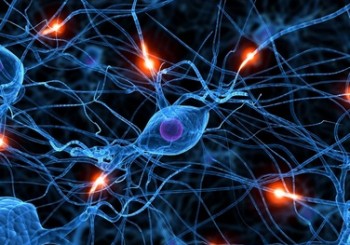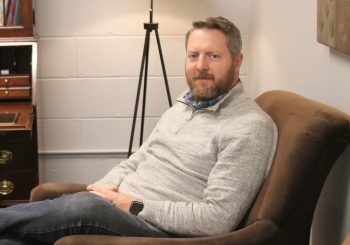Many people have experienced life events that have left strong residual thinking about the world and themselves. Whether it was one intensely serious event or multiple situations that led to your beliefs, you might feel since those events you are not in control or feel overwhelmed with the emotions and thoughts.
Some people may be able to recall a specific situation that feels like it has taken over. Through our work together and the relationship we build with safety and confidentiality, you can find a way out of these overwhelming emotions.
Read this description about EMDR and the way it can help in our work together.
EMDR (Eye Movement Desensitization and Reprocessing) is a psychotherapy that enables people to heal from the symptoms and emotional distress that are the result of disturbing life experiences. Repeated studies show that by using EMDR people can experience the benefits of psychotherapy that once took years to make a difference. It is widely assumed that severe emotional pain requires a long time to heal. EMDR therapy shows that the mind can in fact heal from psychological trauma much as the body recovers from physical trauma. When you cut your hand, your body works to close the wound. If a foreign object or repeated injury irritates the wound, it festers and causes pain. Once the block is removed, healing resumes. EMDR therapy demonstrates that a similar sequence of events occurs with mental processes. The brain’s information processing system naturally moves toward mental health. If the system is blocked or imbalanced by the impact of a disturbing event, the emotional wound festers and can cause intense suffering. Once the block is removed, healing resumes. Using the detailed protocols and procedures learned in EMDR training sessions, clinicians help clients activate their natural healing processes.
Read more about EMDR at http://www.emdr.com/what-is-emdr/
We have learned so much in the last decade about how the brain and body are a part of our emotional process. There are many things you can do to come out of that distress and feel more whole. With the understanding that you are a whole person and more than just emotions or a physical body, EMDR along with other aspects of therapy may be one of those things that leads to wholeness.
Talk with me to learn more about how EMDR can be helpful for you.
The only way to deal with depression is to take the first step by reaching out to someone for help.
Depression can affect many people at different times in their lives. While sometimes depression is brought on by circumstances, it can often be an underlying sense that seems to stay with you no matter life’s situations.
While some people may try to deal with depression on their own, the main problem with depression is that it can take away the desire to reach out to get help. So isolating yourself often results with the depression hanging around. Rather than letting depression keep you bogged down, contact me for a free phone consultation to see if therapy would be the right fit for you.
Also check out these helpful links that might give you ideas on how to help someone you know who deals with depression.
NAMI – this is a great website with information and links to all kinds of resources for depression.
Depression comes in all forms and feeling depressed after having a baby is more common than you think. Postpartum.net provides great resources and can connect you with a local group dealing with postpartum depression.
I am a Licensed Marriage and Family Therapist (LMFT) in the state of Georgia and work with clients from various backgrounds and circumstances. I work with client problems including traumatic life events, anxiety, relationship difficulties, teen issues, and parenting and enjoy working with individuals, couples, and families in all stages of life.
The focus of my recent work has been working with anxiety and traumatic life events. In addition, I assist clients as they deal with the difficulties around relationship conflict and physical/emotional trauma and have experience in a local hospital ICU, group practice, and private practice providing counseling to individuals and families.
I believe each person must be intentional about taking responsibility for their path and that everyone can find a place of being connected with themselves and their relationships when they actively seek healing.
The ideal client for me is a person who wants the richness of experiencing fulfillment in all areas – work/home/family/and friends and is committed to prioritizing themselves by taking the step to take care of themselves. When life’s balance seems off, I work with you to focus on taking action on what is valuable to you in your own specific situation.
Work:
While completing a Master of Arts in Marriage and Family Therapy from Mercer University School of Medicine, I interned at Atlanta Medical Center in the Palliative Medicine Team working with families in the ICU who were facing crisis and difficult decisions. Following graduation, I began working with at risk teens and their families through the largest CORE agency in Georgia – providing counseling to adolescents connected to the Department of Juvenile Justice (DJJ) and state foster and adoption programs. I worked not only with the clients but also fostered growth for other therapists by leading teams of counselors and later providing leadership as the Director of Clinical Services.
Since then, I have been in private practice and continue to work with teens and their families. I have enjoyed returning to working with couples and individuals by helping them deal with anxiety, trauma, and relational difficulties. My primary modes of therapy include EMDR, Acceptance and Commitment Therapy, Solution Focused, and Experiential Therapies but often find it is best to tailor each client’s therapy to fit their needs.
I am also the Membership Committee Chair for the Georgia Association for Marriage and Family Therapy (GAMFT) and serve on the board to help further the health of our society on both the city and state level.




